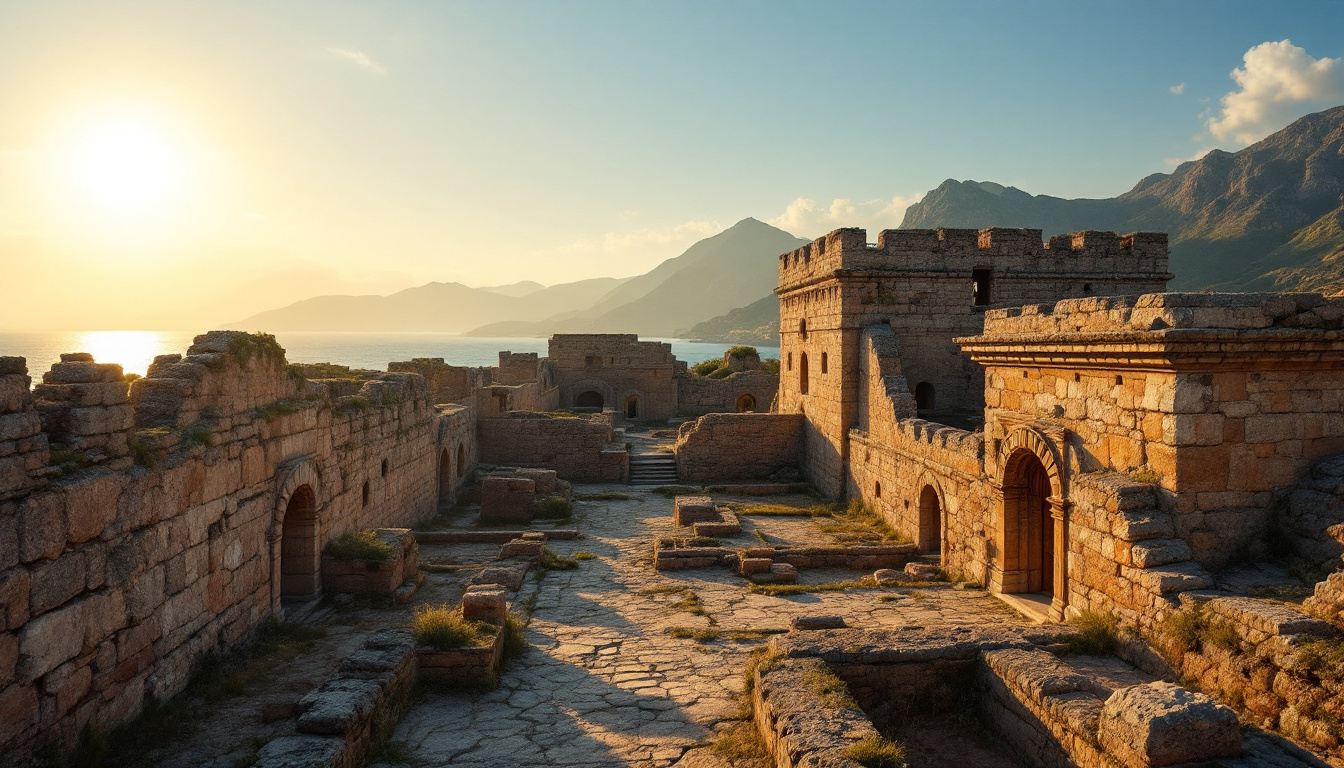Hidden between mountains and sea, Les Cluses guards ancient secrets at France’s southernmost frontier. This tiny commune in the Pyrénées-Orientales department sits strategically where the Pyrenees meet the Mediterranean, just 24 kilometers from Perpignan. What makes this village extraordinary isn’t its size but its fascinating 2,000-year history as a crucial Roman checkpoint controlling passage between Gaul and Hispania.
A fortress that witnessed the rise and fall of empires
The name “Les Cluses” comes from the Latin “clausurae,” meaning “enclosures” or “barriers.” This wasn’t accidental. Roman legions constructed an impressive defensive system here in the 1st century BC, with stone fortifications straddling the historic Via Domitia – the first Roman road built in Gaul connecting Italy to Spain.
“These ruins represent one of the most significant yet underappreciated Roman frontier sites in southern France,” explains local historian Marie Durand. “What visitors see today are the silent witnesses of countless armies and merchants who passed through this strategic corridor.”
Where two worlds meet: between mountains and Mediterranean
Les Cluses enjoys a privileged position in the Vallespir valley, where diverse landscapes converge. To the south rise the dramatic Pyrenees peaks, while just 19 kilometers northeast sparkles the Mediterranean Sea. This unique geographical setting creates a microclimate perfect for exploring year-round.
Nearby, the artistic town of Céret (just 7km away) draws culture enthusiasts with its Museum of Modern Art, where Picasso and Matisse once exhibited. Meanwhile, beach lovers seeking alternatives to crowded destinations can reach the golden shores of Argelès-sur-Mer in just 17 kilometers.
A day trip that spans centuries
Unlike other dramatic French villages, Les Cluses offers subtle charms. Begin your exploration at the Roman ruins, where interpretive panels explain how this ancient checkpoint controlled the narrow passage. The remnants of stone walls and foundations still command impressive views of the surrounding valley.
“What makes Les Cluses special is that you can literally walk through layers of history,” says archaeologist Pierre Vidal. “From Roman soldiers to medieval travelers, countless stories are embedded in these stones.”
Beyond the history: natural wonders await
The surrounding area offers spectacular hiking trails that rival even UNESCO-protected landscapes. Follow ancient paths through Mediterranean forests and discover panoramic viewpoints where the Pyrenees cascade toward the sea.
Les Cluses serves as an ideal base for exploring this region where French and Catalan cultures blend seamlessly. Like certain hidden paradises in Asia, this corner of France remains refreshingly authentic and uncrowded.
A taste of authentic Catalonia
The culinary traditions here reflect Catalan influences – try “bullinada” (fish stew) or “cargolade” (grilled snails) in nearby villages. Local wines from Banyuls and Collioure complement these regional specialties perfectly.
“Our food tells the story of our borderland identity,” explains Carmen, owner of a traditional restaurant in neighboring Le Boulou. “Mediterranean ingredients meet mountain traditions on every plate.”
Where to stay: strategic comfort
While Les Cluses itself offers limited accommodations, nearby towns provide excellent options. Choose Le Boulou for spa experiences or Céret for artistic ambiance. Nature enthusiasts might prefer rural gîtes that dot the countryside, providing peaceful retreats after days of exploration.
Unlike tropical destinations requiring extensive travel, Les Cluses remains easily accessible yet feels worlds away from ordinary tourism routes.
Standing among the ancient stones of Les Cluses, you’ll feel the weight of history while gazing toward both mountains and sea. This forgotten Roman frontier, where emperors once controlled passage between continents, now offers travelers something increasingly rare: an authentic encounter with the past in a breathtaking natural setting that remains delightfully undiscovered.
